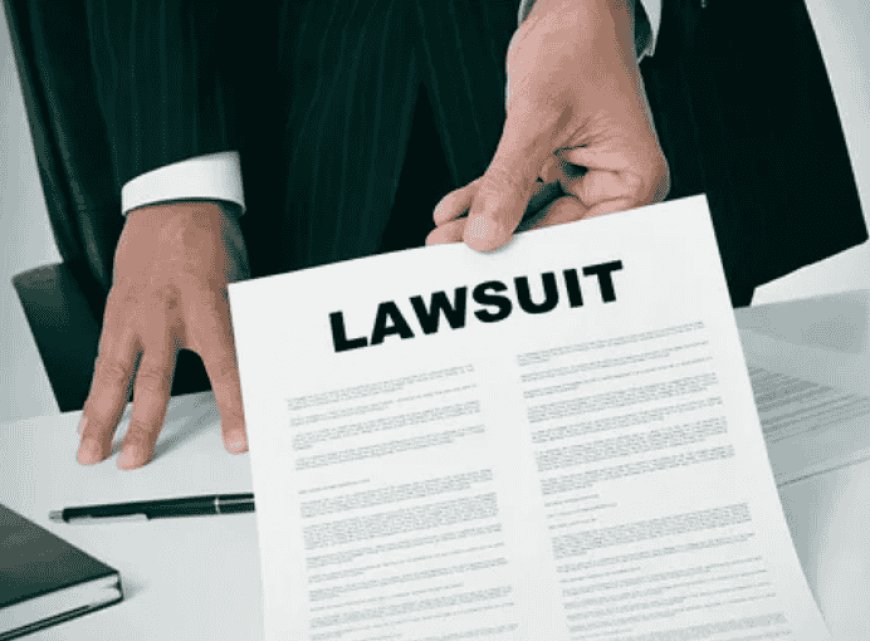How to Protect Yourself from Costly Lawsuits in the USA

Facing a lawsuit in the United States can be financially devastating. Legal battles drain resources, damage reputations, and cause immense stress. Whether you're a business owner, professional, or individual, understanding how to minimize legal risks is crucial.
In this guide, well explore practical steps to protect yourself from expensive lawsuits while staying compliant with U.S. laws. By implementing these strategies, you can safeguard your finances, career, and peace of mind.
Why Lawsuits Are So Common in the USA
The U.S. is one of the most litigious countries globally, with millions of lawsuits filed annually. Common reasons include:
-
Contract disputes(breach of agreement)
-
Personal injury claims(slip-and-fall, car accidents)
-
Employment lawsuits(wrongful termination, discrimination)
-
Intellectual property conflicts(copyright, trademark infringement)
-
Defamation cases(false statements harming reputation)
Without proper precautions, anyone can become a target. Heres how to stay protected.
1. Understand and Follow the Law
Ignorance of the law is not a valid defense. To avoid legal trouble:
-
Stay updated on regulations(federal, state, and local laws).
-
Consult a lawyerwhen drafting contracts or making major decisions.
-
Follow industry-specific compliance rules(e.g., HIPAA for healthcare, OSHA for workplace safety).
2. Get the Right Insurance Coverage
Insurance acts as a financial shield against lawsuits. Key policies include:
-
General Liability Insurance Covers bodily injury, property damage, and personal injury claims.
-
Professional Liability Insurance(Errors & Omissions) Protects against negligence claims.
-
Employment Practices Liability Insurance (EPLI) Covers wrongful termination or harassment claims.
-
Cyber Liability Insurance Essential if you handle sensitive customer data.
Review your policies annually to ensure adequate coverage.
3. Use Clear Contracts and Agreements
A well-drafted contract prevents misunderstandings. Always:
-
Define terms clearly(payment schedules, deliverables, deadlines).
-
Include dispute resolution clauses(mediation or arbitration before litigation).
-
Specify jurisdiction(which states laws apply).
Have a lawyer review important agreements before signing.
4. Protect Your Business with Proper Entity Structure
Choosing the right business structure (LLC, corporation, etc.) limits personal liability.
-
LLCs and Corporationsseparate personal assets from business debts.
-
Sole Proprietorshipsexpose owners to unlimited liability.
Consult a legal expert to determine the best structure for your situation.
5. Maintain Accurate Records
Proper documentation can be a lifesaver in court. Keep:
-
Contracts, invoices, and receipts(proof of transactions).
-
Employee records(hiring, performance reviews, termination details).
-
Incident reports(workplace accidents, customer complaints).
Digital backups ensure records are accessible if needed.
6. Implement Strong Workplace Policies
Employment lawsuits are preventable with clear policies.
-
Anti-discrimination and harassment trainingfor all employees.
-
Fair hiring and firing practices(document performance issues).
-
Overtime and wage compliance(follow FLSA guidelines).
A respectful, legally compliant workplace reduces litigation risks.
7. Be Careful with Public Statements
Defamation lawsuits arise from false or harmful statements. Avoid:
-
False online reviews(negative comments without proof).
-
Misleading advertisements(exaggerated claims).
-
Social media rants(public accusations without evidence).
Stick to facts and avoid unverified claims.
8. Secure Your Digital Assets
Cyber threats lead to lawsuits if customer data is compromised.
-
Use strong passwords and encryption.
-
Train employees on phishing scams.
-
Comply with GDPR or CCPA if handling consumer data.
A single data breach can result in massive legal penalties.
9. Avoid Copyright and Trademark Infringement
Using someone elses intellectual property without permission is risky.
-
Use licensed or original images/music.
-
Check trademarks before branding.
-
Give credit when required (Fair Use exceptions).
When in doubt, seek legal advice.
10. Respond Promptly to Legal Notices
Ignoring a lawsuit worsens the situation. If served:
-
Contact a lawyer immediately.
-
Preserve relevant evidence.
-
Avoid discussing the case publicly.
Early legal intervention can prevent costly judgments.
Final Thoughts: Proactive Protection is Key
Lawsuits can happen to anyone, but smart precautions reduce risks significantly. By staying informed, maintaining proper documentation, and seeking legal guidance when needed, you can avoid costly courtroom battles.
AtRadites, we believe in empowering individuals and businesses with knowledge to navigate legal challenges confidently. Protect yourself todaybecause prevention is always cheaper than litigation.


































